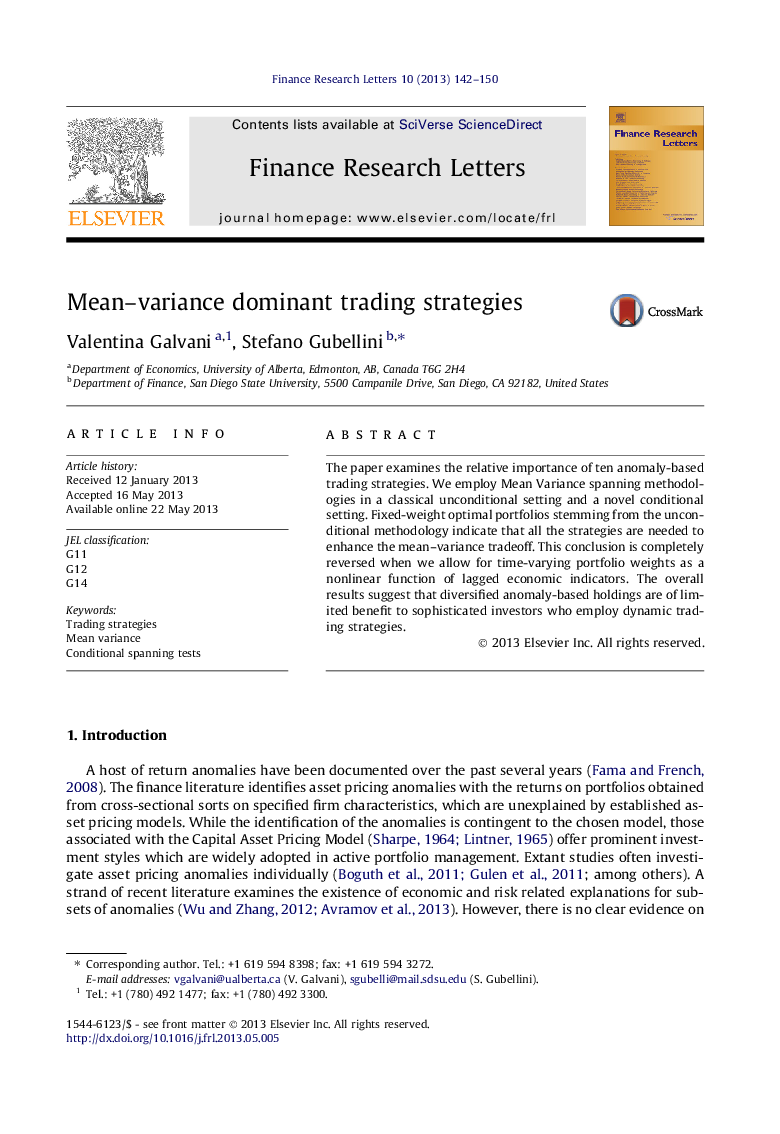| Article ID | Journal | Published Year | Pages | File Type |
|---|---|---|---|---|
| 5069740 | Finance Research Letters | 2013 | 9 Pages |
â¢We investigate the relative importance of anomaly-based strategies from a Mean Variance standpoint.â¢We employ spanning methodologies in a classical unconditional setting and a novel conditional setting.â¢In the classical setting the majority of the anomalies is needed to maximize return to risk compensation.â¢In the conditional setting the same maximization is obtained by including only two of the ten anomalies.â¢The efficient use of conditioning information reduces diversification benefits across anomalies.
The paper examines the relative importance of ten anomaly-based trading strategies. We employ Mean Variance spanning methodologies in a classical unconditional setting and a novel conditional setting. Fixed-weight optimal portfolios stemming from the unconditional methodology indicate that all the strategies are needed to enhance the mean-variance tradeoff. This conclusion is completely reversed when we allow for time-varying portfolio weights as a nonlinear function of lagged economic indicators. The overall results suggest that diversified anomaly-based holdings are of limited benefit to sophisticated investors who employ dynamic trading strategies.
